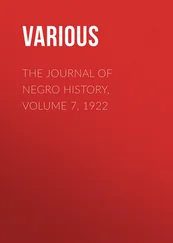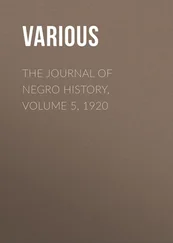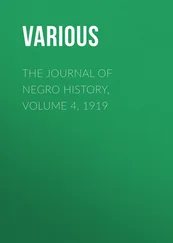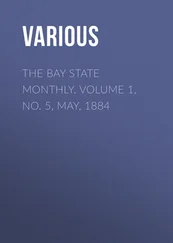Various - The Bay State Monthly, Volume 3, No. 1
Здесь есть возможность читать онлайн «Various - The Bay State Monthly, Volume 3, No. 1» — ознакомительный отрывок электронной книги совершенно бесплатно, а после прочтения отрывка купить полную версию. В некоторых случаях можно слушать аудио, скачать через торрент в формате fb2 и присутствует краткое содержание. Жанр: foreign_antique, periodic, foreign_edu, на английском языке. Описание произведения, (предисловие) а так же отзывы посетителей доступны на портале библиотеки ЛибКат.
- Название:The Bay State Monthly, Volume 3, No. 1
- Автор:
- Жанр:
- Год:неизвестен
- ISBN:нет данных
- Рейтинг книги:3 / 5. Голосов: 1
-
Избранное:Добавить в избранное
- Отзывы:
-
Ваша оценка:
- 60
- 1
- 2
- 3
- 4
- 5
The Bay State Monthly, Volume 3, No. 1: краткое содержание, описание и аннотация
Предлагаем к чтению аннотацию, описание, краткое содержание или предисловие (зависит от того, что написал сам автор книги «The Bay State Monthly, Volume 3, No. 1»). Если вы не нашли необходимую информацию о книге — напишите в комментариях, мы постараемся отыскать её.
The Bay State Monthly, Volume 3, No. 1 — читать онлайн ознакомительный отрывок
Ниже представлен текст книги, разбитый по страницам. Система сохранения места последней прочитанной страницы, позволяет с удобством читать онлайн бесплатно книгу «The Bay State Monthly, Volume 3, No. 1», без необходимости каждый раз заново искать на чём Вы остановились. Поставьте закладку, и сможете в любой момент перейти на страницу, на которой закончили чтение.
Интервал:
Закладка:
From that time must be dated the career of Mr. Thompson as a star or leading actor and manager, at first in low comedy, so called, or eccentric drama, and later, in what he has made a classic New England drama.
Mr. Thompson is the author of several very pleasing and successful comedies, but the play Joshua Whitcomb is the best known and most popular. The leading character is said to have been drawn from Captain Otis Whitcomb, who died in Swanzey in 1882, at the age of eighty-six. Cy Prime, who "could have proved it had Bill Jones been alive," died in that town, a few years since, while Len Holbrook still lives there. General James Wilson, the veteran, who passed away a short time since, was well known to the older generation of today. The last scene of the drama is laid in Swanzey and the scenery is drawn from nature very artistically. Mr. Thompson is the actor as well as creator of the leading character in the play. The good old man is drawn from the quiet and comforts of his rural home to the perplexities of city life in Boston. There his strong character and good sense offset his simplicity and ignorance. He acts as a kind of Providence in guiding the lives of others. To say that the play is pure is not enough—it is ennobling.
The success of the play has been wonderful. Year after year it draws crowded houses—and it will, long after the genius of Mr. Thompson's acting becomes a tradition.
Mr. Thompson is a gentleman of wide culture and extensive reading and information. Not only with the public but with his professional brethren he is very popular on account of his amiable character. Naturally he is of a quiet and benevolent disposition, and has the good word of everyone to whom he is known.
As one of a stock company he never disappointed the manager—as a manager he never disappointed the public.
In private life he has been very happy in his marital relations, having married Miss Maria Bolton in July, 1860. Three children—two daughters and one son, have blessed their union.
A book could well be written on the adventures and incidents that have attended the presentation of the great play since its inception. Nowhere is it more popular than in the neighborhood of Mr. Thompsons's summer home. When a performance is had in Keene the good people of Swanzey demand a special matinee for their benefit, from which the citizens of Keene are supposed to be excluded.
In Colorado a Methodist camp-meeting was adjourned and its members attended the play en masse . Such is the charm of the play that it never loses its attraction.
Mr. Thompson is in the prime of life, about fifty years old. His home is in New Hampshire; his birthplace was in Pennsylvania. He made his debut in Massachusetts, and received his professional training in Canada; he is a citizen of the United States, and is always honored where genius is recognized.
Like the favorite character, Joshua Whitcomb, in his favorite play, Mr. Thompson is personally sensitive, kind-hearted, self-sacrificing; he never speaks ill of any one, delights in doing good, and enjoys hearing and telling a good story; he is quiet, yet full of fun; generous to a fault. His company has become much attached to him.
In the village of Swansey is Mr. Thompson's summer home; a beautiful mansion, surrounded by grounds where art and nature combine to please. The hospitality of the house is proverbial, but its chief attraction is its well-stocked library.
NATIONAL BANKS
In the elimination of an unusually large amount of dead assets under the requirements of the National Bank law, previous to extension of the corporate existence of a bank, the very interesting question is brought to notice, of what is the proper construction of the law in regard to reducing and restoring the surplus fund.
Does the law forbid the payment of a dividend by a National Bank when the effect of such payment will be to reduce the surplus fund of the bank below an amount equal to one-tenth of its net profits since its organization as a National Bank; and if so, upon what ground? It does, and for the following reasons. The power to declare dividends is granted by section 5199 of the Revised Statutes of the United States in the following language: "The Directors of any association (National Bank) may semi-annually declare a dividend of so much of the net profits of the association as they shall judge expedient; but each association shall, before the declaration of a dividend, carry one-tenth of its net profits of the preceding half year to its surplus fund until the same shall amount to twenty per cent, of its capital stock."
The question at once arises, what are the net profits from which dividends may be declared, and do they include the surplus fund? It is held that the net profits are the earnings left on hand after charging off expenses, taxes and losses, if any, and carrying to surplus fund the amount required by the law, and that the surplus fund is not to be considered as net profits available for dividends, for, if it were, the Directors of a bank could at any time divide the surplus among the shareholders. It would only be necessary to go through the form of carrying one-tenth of the net profits to surplus, whereupon, if the surplus be net profits available for the purpose of a dividend, the amount so carried can be withdrawn and paid away at once, thereby defeating the obvious purpose of the law in requiring a portion of each six month's earnings to be carried to the surplus fund, that purpose being to provide that a surplus fund equal to twenty per cent, of the bank's capital shall be accumulated.
The law is to be so construed as to give effect to all its parts, and any construction that does not do so is manifestly unsound. Therefore a construction which would render inoperative the requirement for the accumulation of a surplus fund cannot be correct, and the net profits available for dividends must be determined by the amount of earnings on hand other than the surplus fund when that fund does not exceed a sum equal to one-tenth of the earnings of the bank since its organization.
Having shown what the net profits available for dividends are, the only other question that can arise is: Can losses and bad debts be charged to the surplus fund and the other earnings used for paying dividends, or must all losses and bad debts be first charged against earnings other than the surplus fund, so far as such earnings will admit of it, and the surplus, or a portion of it, used only when other earnings shall be exhausted?
This question is virtually answered above, for if the object of the law in requiring the creation of a surplus fund may not be defeated by one means it may not by another; if it may not be defeated by paying away the amounts carried to surplus in dividends, neither may it be by charging losses to the surplus and at the same time using the other earnings for dividends.
Moreover, section 5204 of the Revised Statutes of the United States provides as follows: "If losses have at any time been sustained by any such association, equal to or exceeding its undivided profits then on hand, no dividend shall be made; and no dividend shall ever be made by any association, while it continues its banking operations, to an amount greater than its net profits then on hand, deducting therefrom its losses and bad debts."
This language fixes the extent to which dividends may be made at the amount of the "net profits" on hand after deducting therefrom losses and bad debts, and as it has been shown above that the surplus fund cannot be considered "net profits," available for dividends within the meaning of the law, it follows that in order to determine the amount of net earnings available for dividends the losses must first be deducted from the earnings other than surplus.
Читать дальшеИнтервал:
Закладка:
Похожие книги на «The Bay State Monthly, Volume 3, No. 1»
Представляем Вашему вниманию похожие книги на «The Bay State Monthly, Volume 3, No. 1» списком для выбора. Мы отобрали схожую по названию и смыслу литературу в надежде предоставить читателям больше вариантов отыскать новые, интересные, ещё непрочитанные произведения.
Обсуждение, отзывы о книге «The Bay State Monthly, Volume 3, No. 1» и просто собственные мнения читателей. Оставьте ваши комментарии, напишите, что Вы думаете о произведении, его смысле или главных героях. Укажите что конкретно понравилось, а что нет, и почему Вы так считаете.












